16 Movies You Didn’t Know Were Comic Book Adaptations
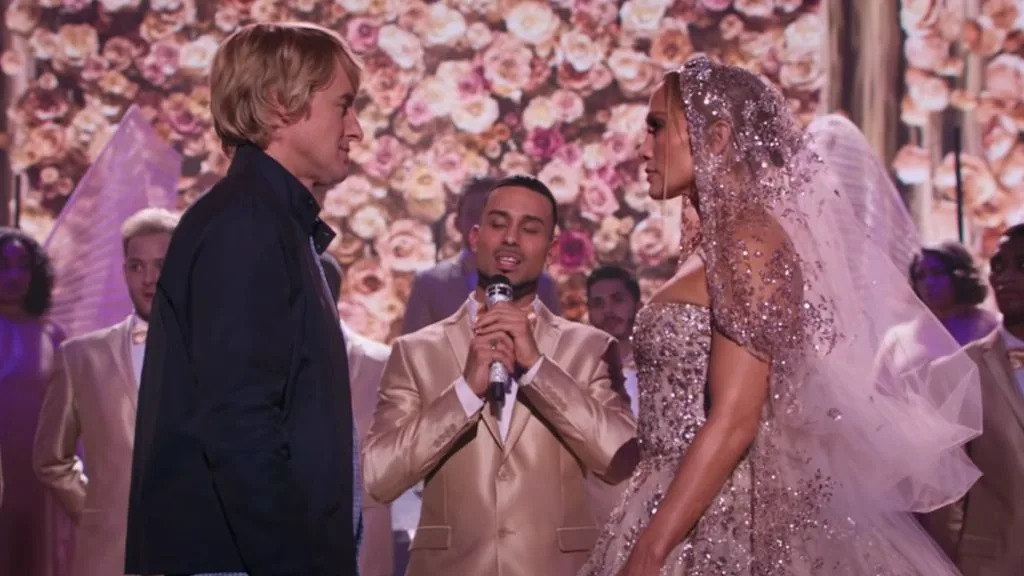
No type of film has seen more repeated success this millennium than the comic book movie. Big-screen adaptations of Batman, Spider-Man, The Avengers and more are met with success time and time again. But there are plenty of popular films with comic book origins most people aren’t even aware of.
With “The Old Guard 2” now streaming on Netflix, here are 16 films you may not know are comic book adaptations.
More from TheWrap
Julian McMahon, Star of ‘Nip/Tuck’ and ‘Fantastic Four,’ Dies at 56
Craig Robinson Says He’s Quitting Comedy ‘to Focus on My True Calling’ | Video
Peter Sarsgaard Calls for ‘Collective Action’ in a Divided America at Karlovy Vary Film Festival
16 Movies You Didn’t Know Were Comic Book Adaptations

“2 Guns”
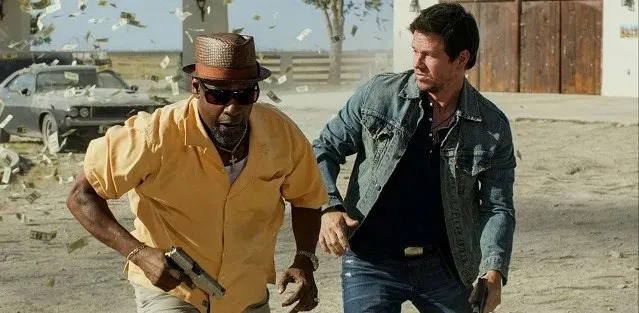
Boom! Studios’ comic “2 Guns” by Steven Grant and Mateus Santolouco provided the basis for a Denzel Washington/Mark Wahlberg buddy cop movie of the same name. The film, directed by Baltasar Kormákur and written by Blake Masters, follows the two as a pair of undercover agents who are unknowingly attempting to take down the same drug lord. Though the five-issue series “2 Guns” came out in 2007, Grant and artist Emilio Laiso launched a six-issue follow-up book titled “3 Guns” the same week as the film’s Aug. 2013 release.
“Cowboys & Aliens”
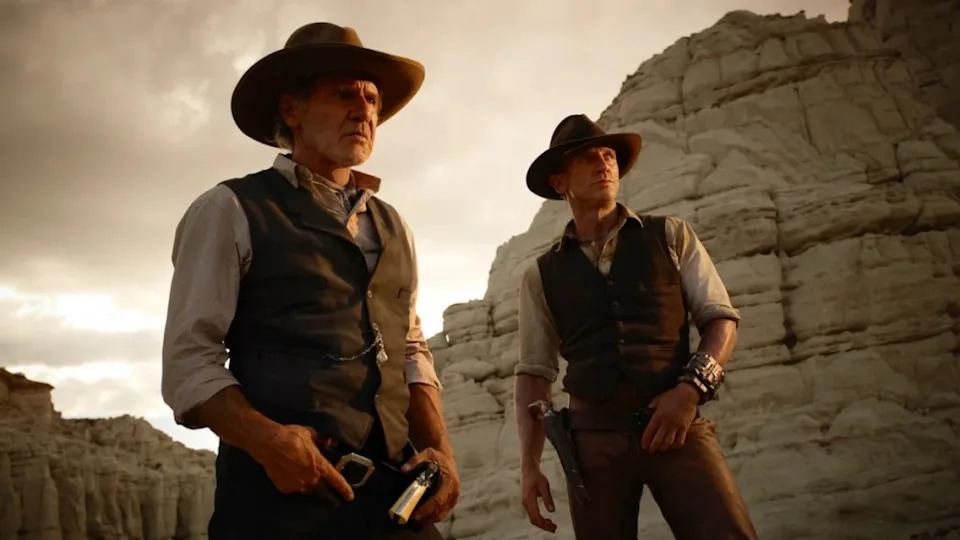 Warner Bros.
Warner Bros.Did you know Red Hulk wasn’t Harrison Ford’s first comic book role? The actor starred alongside Daniel Craig in Jon Favreau’s “Cowboys & Aliens,” an adaptation of the 2006 Platinum Studios comic of the same name. The comic was created by Platinum head Scott Mitchell Rosenberg, who hired writers Fred Van Lente and Andrew Foley and artists Dennis Calero and Luciano Lima. A famous flop, the film follows Craig and Ford as they fend off an alien invasion in 1870s New Mexico. Craig appeared in Steven Spielberg’s “The Adventures of Tintin” adaptation the same year —and hasn’t returned to a comic book film since.
“The Empty Man”
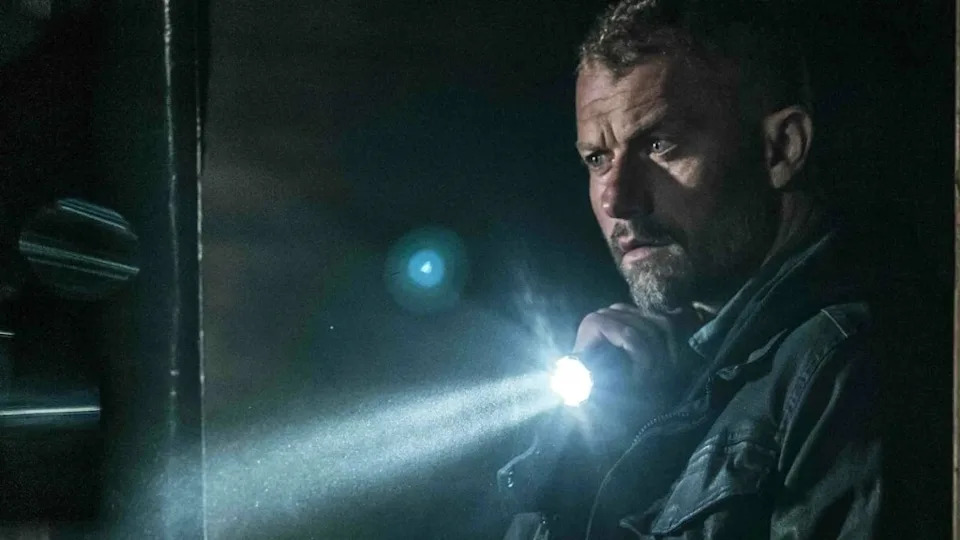 20th Century StudiosAdvertisementAdvertisement#«R2eekkr8lb2m7nfddbH1» iframe AdvertisementAdvertisement#«R4eekkr8lb2m7nfddbH1» iframe
20th Century StudiosAdvertisementAdvertisement#«R2eekkr8lb2m7nfddbH1» iframe AdvertisementAdvertisement#«R4eekkr8lb2m7nfddbH1» iframe A hidden gem of 2020s horror, David Prior’s “The Empty Man” quickly gained a cult following for its tremendous sense of dread and mystery. Though following an original story, the film draws inspiration from Cullen Bunn and Vanesa R. Del Rey’s graphic novel of the same name. Bunn is known for his work on projects like “Uncanny X-Men,” “Deadpool Kills the Marvel Universe” and the original Dark Horse horror comic “Harrow County.” The film adaptation does an excellent job of matching the tone of the Boom! Studios book while bringing in fresh elements. “The Empty Man” is worth a watch for the tense and disturbing cold open alone.
“Here”
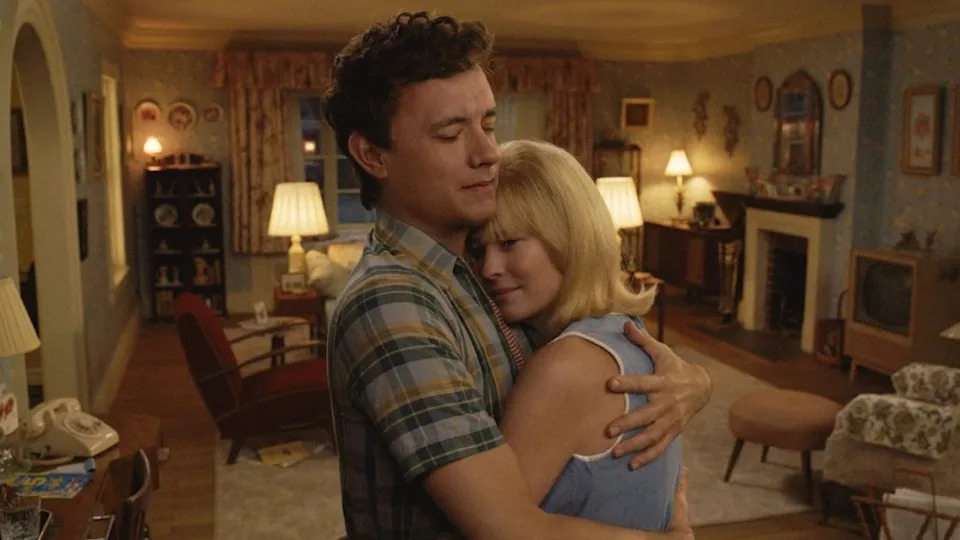 Sony
Sony“Here” took a long path from the page to the screen. The idea began as a six-page comic, only 36 panels in length, written and illustrated by Richard McGuire in 1989. McGuire would later expand the comic, which focuses on a single corner of a single room shown forwards and backwards through time with overlapping panels, into a full-length graphic novel in 2014. In 2024, Robert Zemeckis adapted the concept into a Tom Hanks/Robin Wright vehicle co-written by Eric Roth (the four previously teamed for Oscar-winner “Forrest Gump”). The comic speaks strongly to Zemeckis’ sensibilities, giving him a playground to mix formal and technical experimentation with outwardly emotional storytelling.
“A History of Violence”
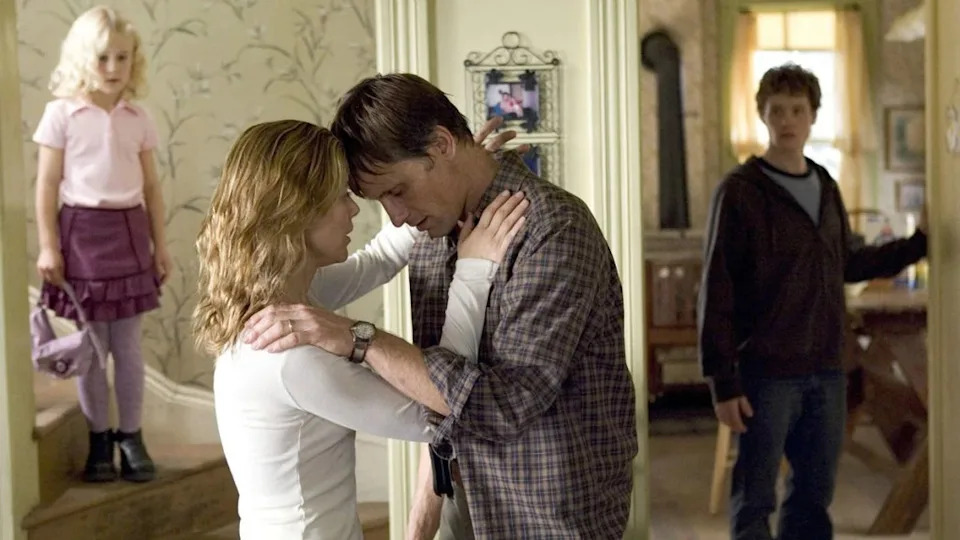 New Line Cinema
New Line CinemaOne of the only Big 2 adaptations on this list, “A History of Violence” brings John Wagner and Vince Locke’s graphic novel to the big screen with David Cronenberg behind the wheel. “A History of Violence” was originally published by DC imprint Paradox Press, with screenwriter Josh Olson receiving an Oscar nomination for adapting the story for film. Cronenberg’s hyper-violent retelling received broad acclaim, standing out as a narrative deviation from many of his other celebrated films. Olson’s screenplay takes particular liberty in adapting the character of Richie Cusack to the screen — a swerve that helped earn William Hurt a Best Supporting Actor nomination at the Oscars.
“The Killer” (2023)
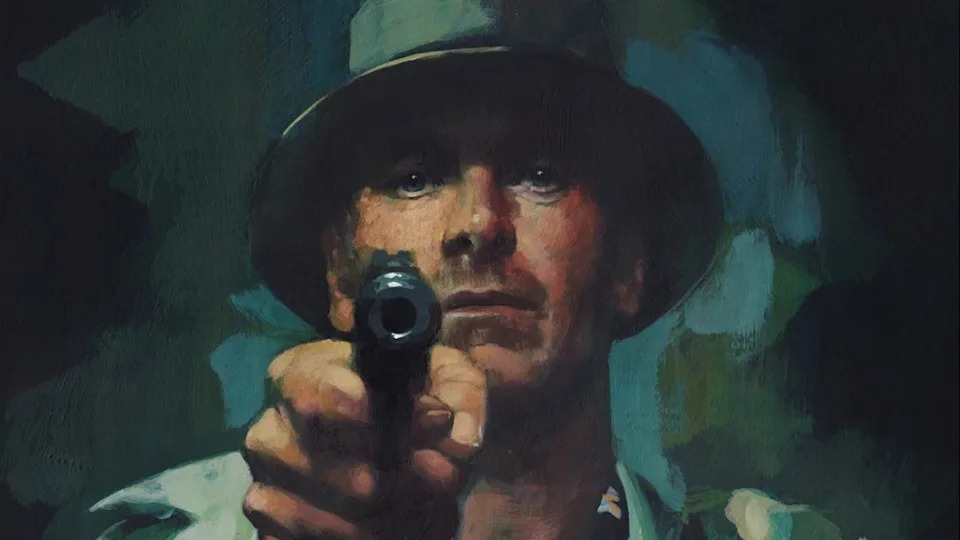
David Fincher’s latest for Netflix, “The Killer” stars Michael Fassbender as a clinical, obsessed hitman who makes a massive, life-altering error. Fincher initially signed on to adapt Matz and Luc Jacamon’s comic of the same name all the way back in 2007, partnering with Paramount and Plan B in his pre-Netflix days. The streamer eventually took over the rights. Fincher makes a feast out of the comic, finding unexpected humor in the oft-erring assassin’s overly procedural lifestyle. It may not be Fincher’s unrealized Spider-Man film, but “The Killer” is one of the better comic book films this decade.
“Marry Me”
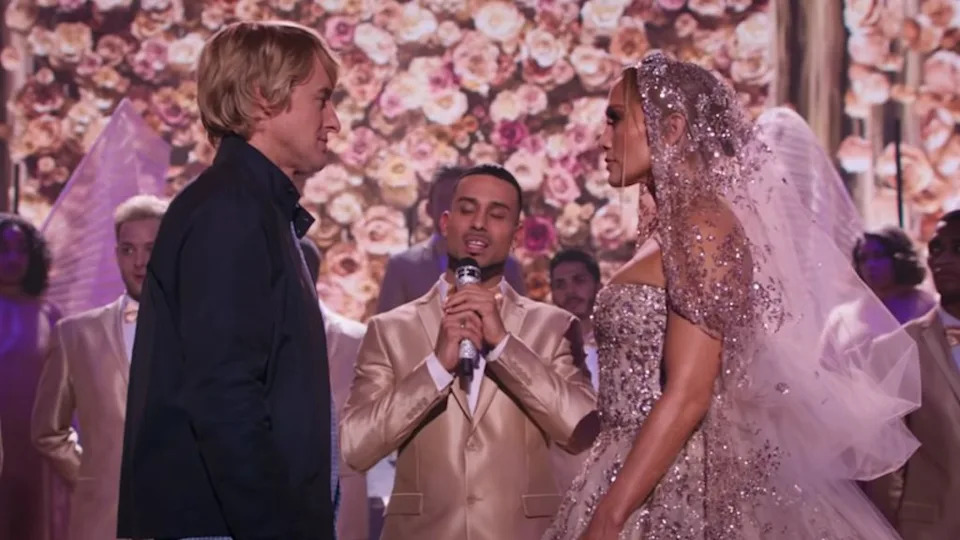 Universal PicturesAdvertisementAdvertisement#«R2rekkr8lb2m7nfddbH1» iframe AdvertisementAdvertisement#«R4rekkr8lb2m7nfddbH1» iframe
Universal PicturesAdvertisementAdvertisement#«R2rekkr8lb2m7nfddbH1» iframe AdvertisementAdvertisement#«R4rekkr8lb2m7nfddbH1» iframe One of the more surprising adaptations on this list, Jennifer Lopez and Owen Wilson’s 2022 romantic comedy “Marry Me” traces its roots back to a romance webcomic. Bobby Crosby wrote the story for Keenspot and Blatant Comics, with Remy “Eisu” Mokhtar providing illustrations. The film and graphic novel follow the same basic plot, as a pop star (Lopez) selects a fan (Wilson) from her concert crowd as a romantic partner after seeing him holding a sign that reads, “MARRY ME.” Lopez and Wilson hit all the right notes in the traditional rom-com — as does the movie’s catchy title song by Lopez and Maluma.
“Men in Black”
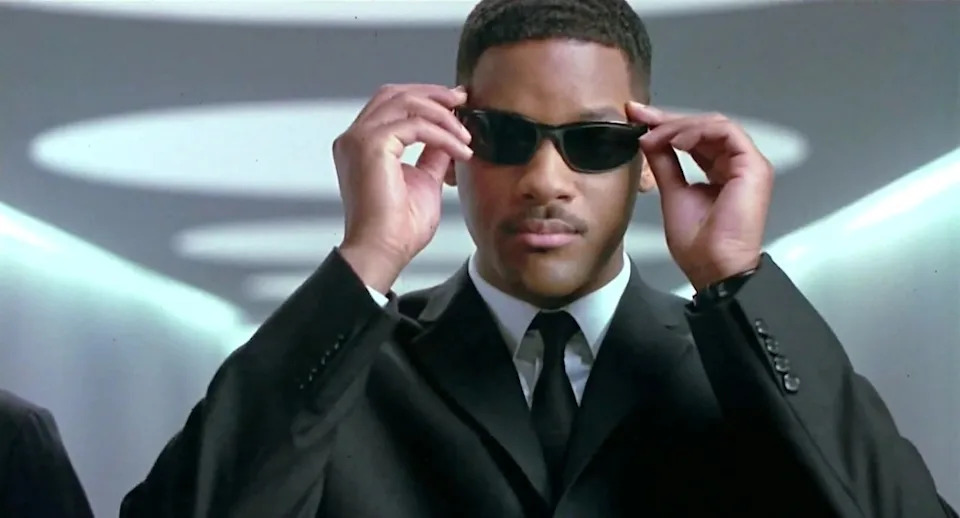
Even if you weren’t familiar with the source material, “Men in Black” is one of the least surprising movies on this list. The sci-fi concept, full of high-tech weapons and interestingly-designed creatures, translates perfectly to the comic book format —if there weren’t “MiB” comics before the film, there surely would’ve been some after. While the comics feature paranormal and demonic threats, director Barry Sonnenfeld and screenwriter Ed Solomon depart from the source material by focusing entirely on aliens. It’s a choice that gives the film greater focus, allowing Solomon to home in on a clever and insightful action-comedy script. If anything, it’s surprising that there aren’t more “Men in Black” comics today.
“Oblivion”
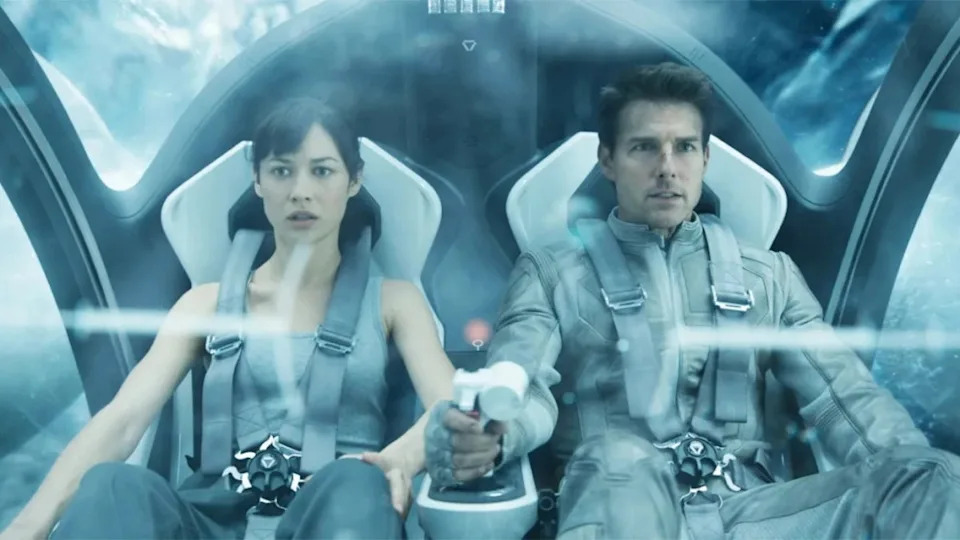 Universal Pictures
Universal Pictures“Oblivion” holds the distinction of being the only entry on this list that adapts a comic that never officially released. After Joseph Kosinski (director of “Top Gun: Maverick” and “F1”) developed a treatment for the film, the 2007 WGA strike prevented him from continuing it as a screenplay with other screenwriters. Kosinski partnered with Radical Comics and co-writer Arvid Nelson to workshop the idea as a graphic novel, working through the story with a set of images to continue the pre-production process. The comic, however, would never be completed, as Kosinski used what he had created to help pitch the story as a blockbuster. Universal eventually acquired the rights from Radical Comics, allowing Kosinski to direct the film, which would star Tom Cruise with a screenplay from Karl Gajdusek and Michael deBruyn. Though “Oblivion” hit theaters in 2013, the graphic novel remains unpublished to this day.
“Old”
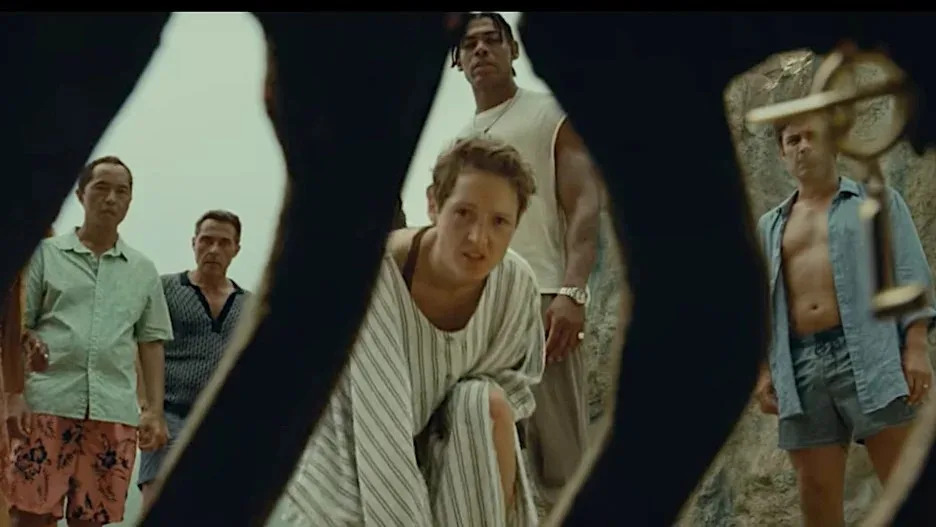 Universal
UniversalIf you like to make fun of “The beach that makes you old,” don’t blame M. Night Shyamalan. The director’s 2021 horror film borrows its concept from “Sandcastle,” a French-language graphic novel by Pierre Oscar Lévy and Frederik Peeters. Shyamalan decided to adapt the story after receiving the book as a Father’s Day gift from his three daughters. Like the novel, the film follows a group of people stranded on a beach that accelerates their aging to an alarming pace, forcing them to confront their mortality with the limited time they have left. This intersection of genre and heart-on-its-sleeve humanity lies at the center of many of Shyamalan’s films. “Old” marks arguably the most controversial of the director’s recent films, with audiences equally calling it a masterpiece and a total failure.
“The Old Guard”
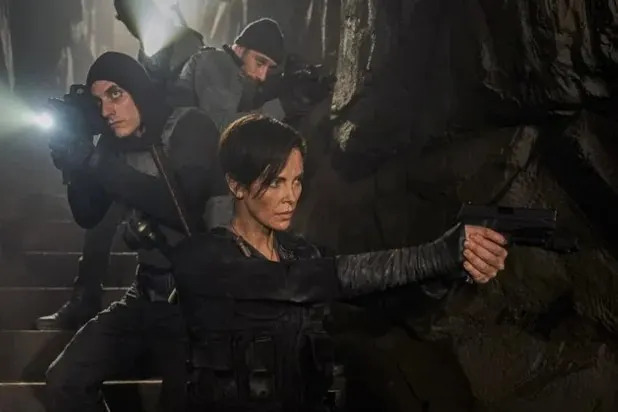 NetflixAdvertisementAdvertisement#«R38ekkr8lb2m7nfddbH1» iframe AdvertisementAdvertisement#«R58ekkr8lb2m7nfddbH1» iframe
NetflixAdvertisementAdvertisement#«R38ekkr8lb2m7nfddbH1» iframe AdvertisementAdvertisement#«R58ekkr8lb2m7nfddbH1» iframe Three-time Eisner Award winner Greg Rucka wrote for some of DC and Marvel’s most beloved characters, including notable runs on DC’s trinity of heroes. In 2020, Rucka adapted one of his own comics, “The Old Guard,” as the screenwriter for Gina Prince-Bythewood’s Netflix action film. Rucka created the series, which follows a cadre of immortal warriors, for Image Comics with artist Leandro Fernández. Charlize Theron and KiKi Layne star in the film adaptation, with a sequel that released on Netflix July 2.
“Oldboy” (2003)
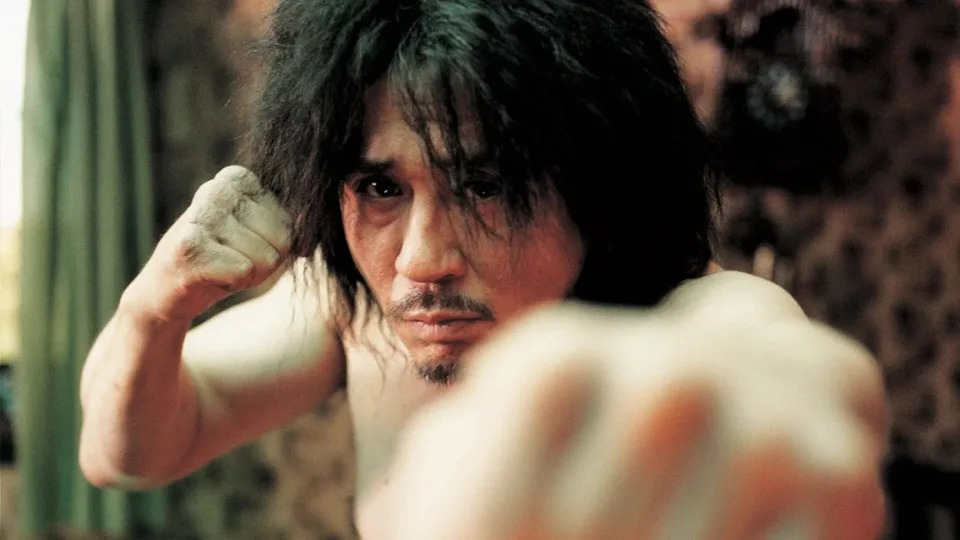 Neon
NeonTurns out there are a lot of movies with the word “Old” in the title that are adapted from comics. Park Chan-wook’s iconic action-thriller “Oldboy” pulls from the 79-chapter manga “Old Boy” by Garon Tsuchiya and Nobuaki Minegishi. Though the manga is certainly popular in its own right (winning an Eisner Award for its U.S. reprint in 2007), its fame today pales in comparison to the modern classic of South Korean cinema. There’s a lot of crossover between the manga’s story and the movie’s, but the film’s shocking ending? That one’s an original.
“Road to Perdition”
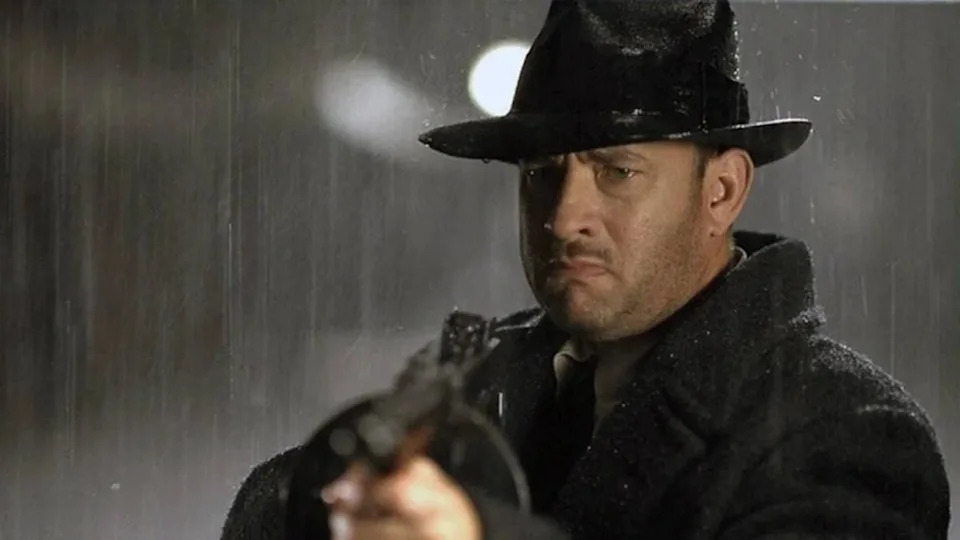 DreamWorks Pictures
DreamWorks PicturesAnother Paradox Press publication for DC, Max Allan Collins and Richard Piers Rayner’s “Road to Perdition” provided the basis for the Sam Mendes film starring Tom Hanks. The story follows a father-son duo (with “Superman & Lois” actor Tyler Hoechlin portraying Hanks’ son) as they reckon with the effects of the father’s criminal occupation. A number of follow-ups, both comics and prose, were written after the release of the film, including a Vertigo graphic novel in 2011. The adaptation was nominated for six Academy Awards, including a Best Supporting Actor nomination for Paul Newman and a posthumous Best Cinematography win for Conrad L. Hall.
“Robot Dreams”
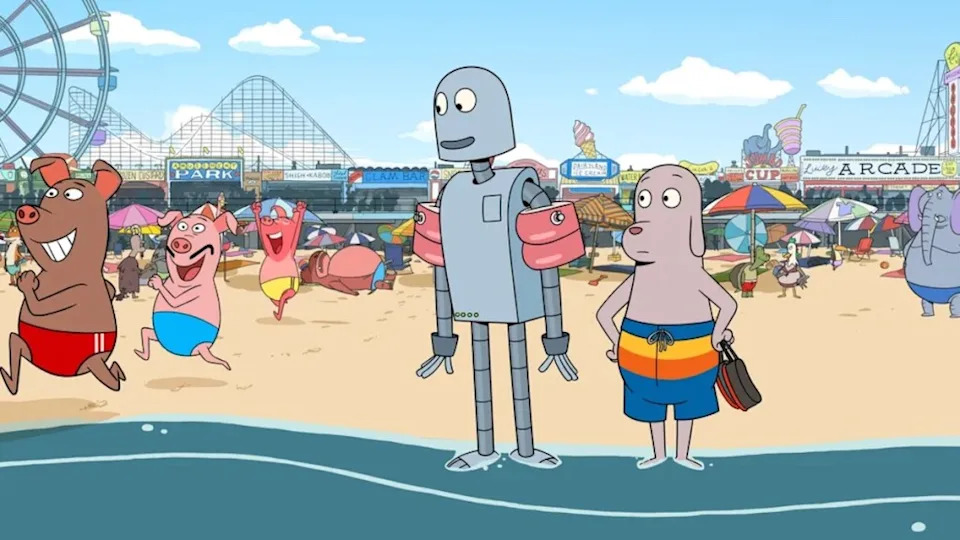 “Robot Dreams” (Credit: Neon)
“Robot Dreams” (Credit: Neon)“Robot Dreams” made waves in 2024 when it earned a surprise nomination for Best Animated Feature at the 96th Academy Awards. The film, which details the friendship and separation of a dog and a robot, adapts Sara Varon’s 2007 children’s graphic novel. Both the movie and the comic are dialogue-free, relying on colorful visuals and soulful art to portray the lifespan of Dog and Robot’s relationship. The movie’s use of the song “September” alone justifies the touching big-screen adaptation.
“Timecop”
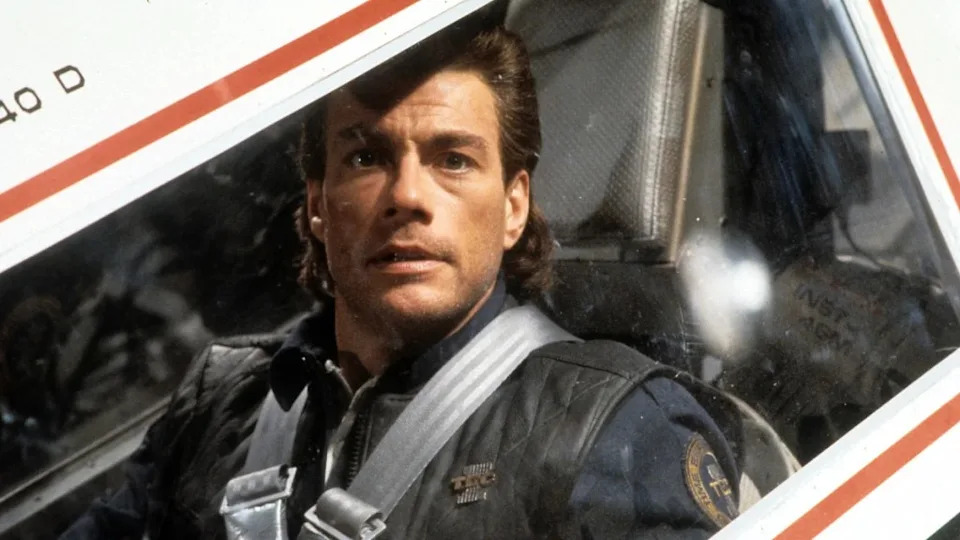 Jean-Claude Van Damme in “Timecop” (Photo by Largo Entertainment/Getty Images)AdvertisementAdvertisement#«R3lekkr8lb2m7nfddbH1» iframe AdvertisementAdvertisement#«R5lekkr8lb2m7nfddbH1» iframe
Jean-Claude Van Damme in “Timecop” (Photo by Largo Entertainment/Getty Images)AdvertisementAdvertisement#«R3lekkr8lb2m7nfddbH1» iframe AdvertisementAdvertisement#«R5lekkr8lb2m7nfddbH1» iframe Both the film “Timecop” and the Dark Horse comic “A Man Out of Time” follow Max Walker, a Time Enforcement Commission officer tasked with stopping illegal time travel and alterations to the timeline. In the 90s, the first three issues of “Dark Horse Comics” each featured a new installment of the “Time Cop” story, written by Mark Verheiden with art by Ron Randall. Mike Richardson, who created Dark Horse Comics, initially conceived of the story. Today, “Timecop” is one of the more highly regarded movies in Jean-Claude Van Damme’s filmography, earning just over $100 million at the box office.
“Weird Science”
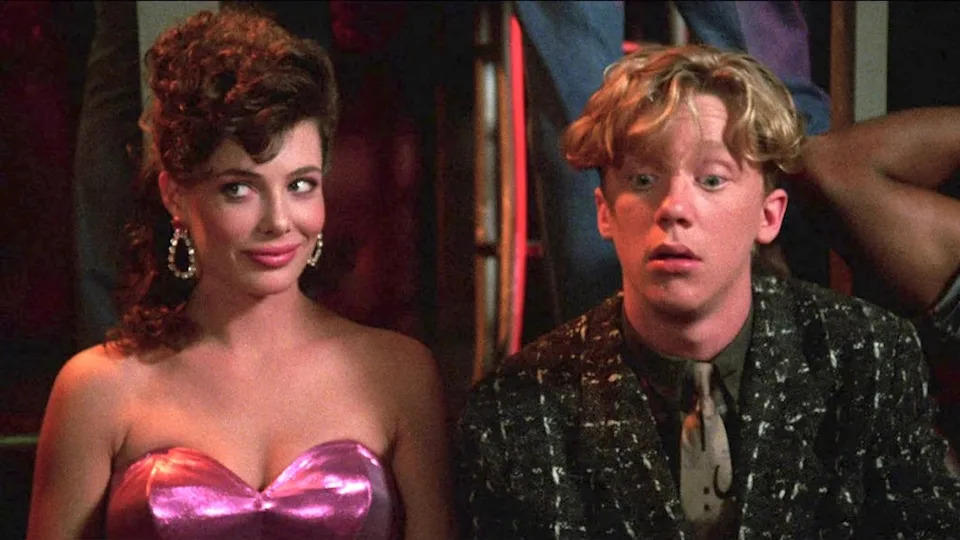 Kelly LeBrock and Anthony Michael Hall in “Weird Science”(CREDIT: Universal Pictures)
Kelly LeBrock and Anthony Michael Hall in “Weird Science”(CREDIT: Universal Pictures)The oldest adaptation on this list, “Weird Science,” saw writer/director John Hughes pull from the 1950s EC comic of the same name. Hughes drew specifically from Al Feldstein and Bill Gaines’ eight-page tale “Made of the Future!” from the 1950s “Weird Science #5.” In the 1985 comedy, Anthony Michael Hall and Ilan Mitchell-Smith play two nerdy high schoolers who build their dream woman (played by Kelly LeBrock) with a computer. Bill Paxton and Robert Downey Jr. also appear in the teen comedy. Hughes released this “Frankenstein” riff the same year as “The Breakfast Club” —and it’s no shocker that his comic book adaptation ended up being the lesser known of the two.
The post 16 Movies You Didn’t Know Were Comic Book Adaptations appeared first on TheWrap.













